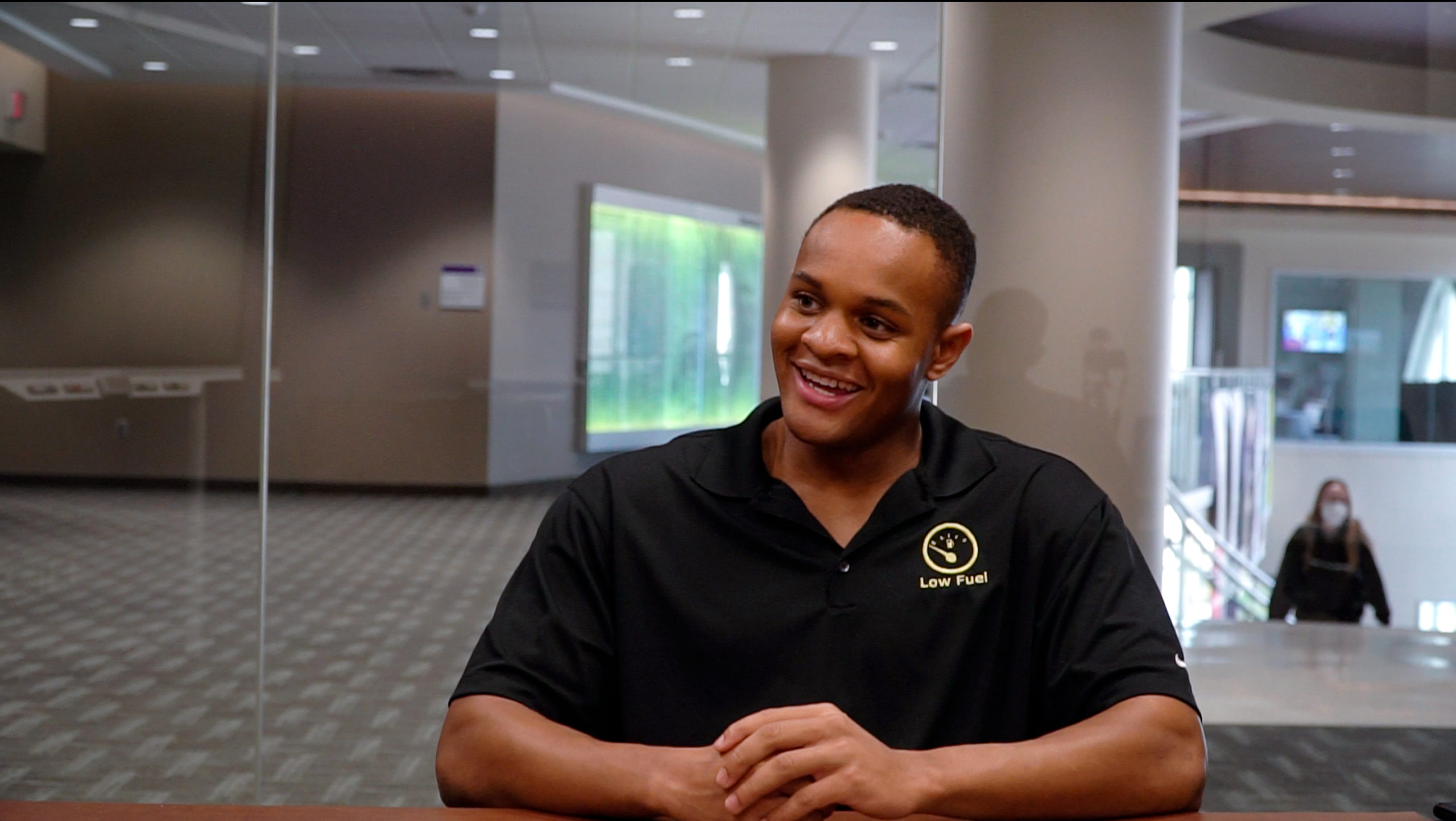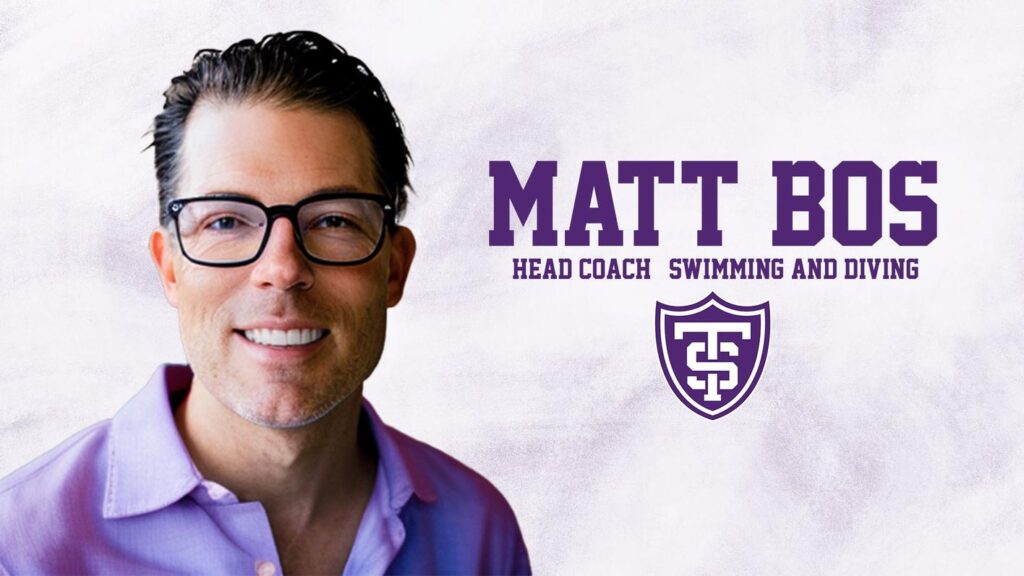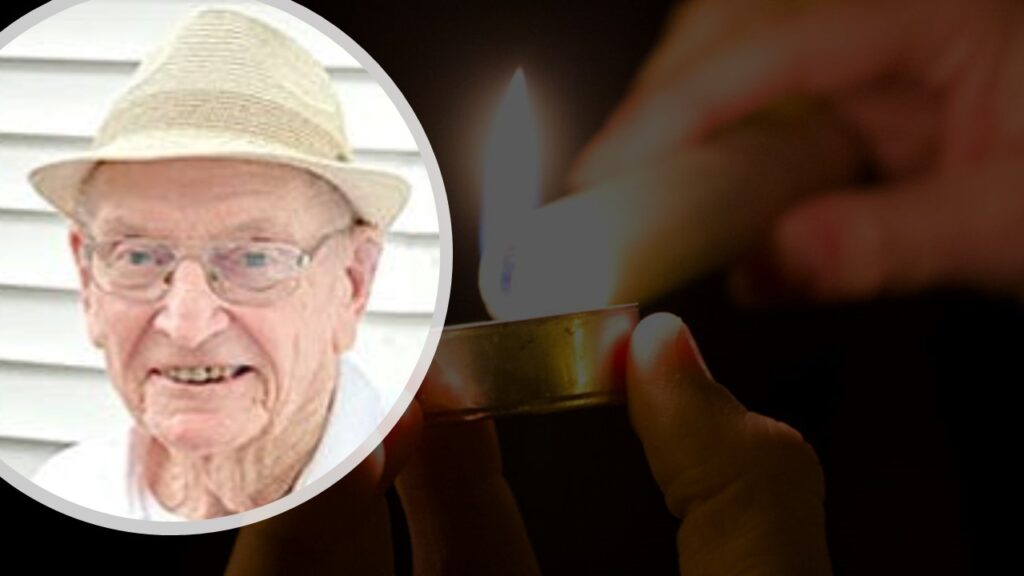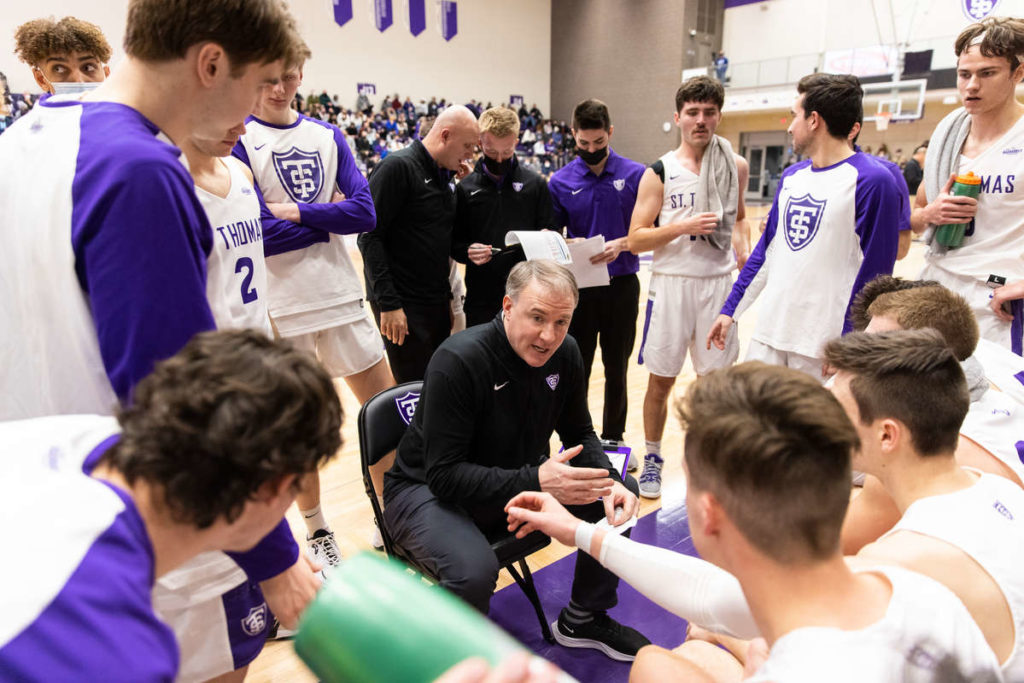Julian Cavin, a wide receiver on the football team and junior in the Schulze School of Entrepreneurship, delivers on more than just the football field.
He has raised more than $200K for his company, Low Fuel, an app-based delivery service that brings gas to customers and their vehicles any time, any place in the Twin Cities. Cavin expects to expand his business to other major cities in the next year.
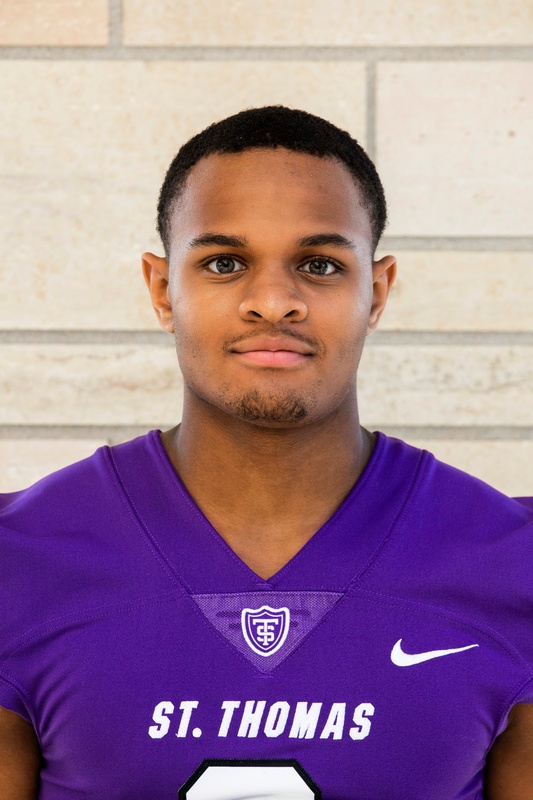
What gave you the idea to start your business?
In high school, a lot of my friends came from single-parent homes and I wanted to do my part to help them. I would pick them up and bring them to school every morning. To do that, though, I would have to go get gas first, so I wasn’t always able to finish my breakfast or homework.
Every time I was making breakfast, I wished that there was a way for someone to bring gas to me so I could eat and have my car ready to go when I was ready. I also hated getting gas in the winter, freezing while I was waiting to be done filling up.
I had an entrepreneurship class in high school at Maranatha Christian Academy in Brooklyn Park, where at the end of the year we had a “Shark Tank”-like competition; I presented the idea of Low Fuel and won. I then was entered into a pool for a competition at a Twin Cities college, though I did not end up winning.
How has your time at St. Thomas impacted how you run and view your company?
After reaching the semifinals for a scholarship with my idea for Low Fuel, Twin Cities entrepreneur Bobby Mason reached out and encouraged me to still pursue my idea. When the pandemic began, I saw just how big of a market a delivery service could have, and I was thinking how great it would be if there was a way to be able to get gas to the essential workers so they wouldn’t have to worry about it.
On top of that, with the murder of George Floyd and the protests afterward, people – my friends included – wanted to limit the time they spent outside. Soon my friends started asking me to bring gas to them, which I gladly did. The market for delivery had grown to include more than just food.
Do you have a delivery that stands out to you?
I was able to deliver gas to DeVentri Jordan, the CEO of GameFace Training and a mentor. Then he texted me saying that what I did was the best part of his day because I was able to save him a lot of time.
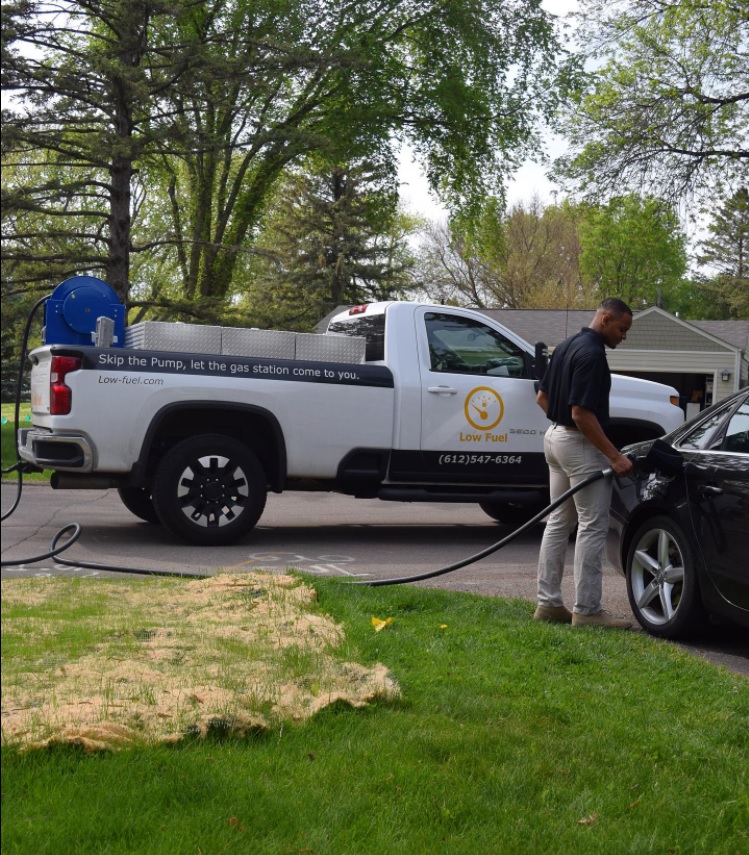
What do you do to advertise your business?
The fact that I am a student at St. Thomas who owns his own business and plays football here really impresses a lot of people. They like the fact that I am serious about my business. The human connection really helps us, because instead of giving money to some millionaire, they can give it to our company to help us grow.
How do you balance schoolwork, athletics and running your business?
It’s really tough. In my freshman year, I was a part of both the football and track program here on top of all my work for school and my business. In some respects, it was easier then, as I didn’t have as much to do in terms of my business, since I was just starting.
In my sophomore year, things got trickier – I was fundraising for my business and was a starting wide receiver on the football team, so I had to take a little time off to focus more on fundraising. Organization is the main part, though; it’s been helpful to be able to watch how my dad works and follow the example he set. I also know that this is the type of life I’ve always wanted to do. This is what I asked God for, so if I’m not able to handle it now, I won’t be able to do it down the road. To be given the opportunity to figure it out now is amazing, being able to get advice from faculty, my mentors and those around me. It’s all about being mentally tough, and organization plays a large part with that.
Who are people who have had a big impact on you and your business?
I’ve been able to have a lot of mentors for all aspects of my life. There is sales and leadership coach Jim Gapp, who is one of the wisest guys I know; he helps me a lot with my mental and physical fitness. Bryce Ferrell, 10th Floor Properties president, who gave me my first look into what running a large company looks like by having me come to his office when I was in high school. Life Time Fitness founder and CEO Bahram Akradi, who just provided me with a large amount of knowledge about the business world, which has allowed me to learn from his success.
Finally, my father, being able to see his work ethic, allowing me to see what hard work can get you and how you will be rewarded for your work. He brought me up with business all around me; that has been so influential to me that, at kindergarten graduation, I said that I wanted to be a businessman when I grew up.
How has your company changed since you founded it?
It’s grown a lot; raising $200K has allowed me to bring on two employees who deliver gas to clients, which allows me to focus more on the growth of the company.
I have also been able to bring on two people to focus on the marketing of Low Fuel so we can continue to grow. From this growth we have been able to work with large companies like Xcel Energy, giving Low Fuel the ability to expand outside of Minnesota and into other states. We’ve also recently began to offer Low Fuel services to boats.
Did you notice any impact on Low Fuel from the COVID-19 pandemic?
There was an increase in the usage. Everything related to delivery services became incredibly popular at the time. It also showed me that my business had potential. This helped us gain customers and be able to continue the growth we have experienced.
Where do you see Low Fuel going in the future?
The thing about Low Fuel is that it’s really adaptable; with the rise of electric vehicles, we have been working with Xcel Energy to get high-powered chargers for electric vehicles. So, Low Fuel will be able to provide a mobile charging service … there are still not a lot of charging stations, especially here in Minnesota. This also will let us expand to other cities like Seattle, where there are a lot of electric vehicles. We are also working with companies with fleets of cars, so instead of their employees having to go out and fill up the fleet, we will do that for them. We also are working on getting a deal with the Minnesota Department of Transportation to work out an agreement to fill up their fleets of vehicles. Finally, we are working on partnering with a Fortune 500 company, which will help us expand across Minnesota and into other states such as Texas and New York.
